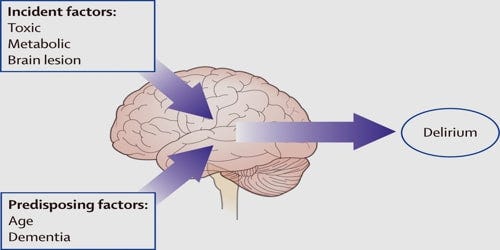Anesthesia, Delirium and Dementia
In the elderly, putting them to sleep, scrambles their brains. PREMIUM CONTENT subscriber access
In a previous newsletter, I wrote about the brain changes occurring when patients are anesthetized, as they switch from consciousness to un-consciousness.
This reversible loss of consciousness is accompanied by transient amnesia. Memory loss is common after general anesthesia, particularly for events
occurring immediately before surgery—a phenomenon called retrograde
amnesia. Perioperative confusion is common, especially in elderly patients. Most times, these cognitive symptoms clear up with re-orientation and time.
Question is: what factors can lead to long term memory dysfunction?
Keep reading with a 7-day free trial
Subscribe to BioMedWorks’ Newsletter to keep reading this post and get 7 days of free access to the full post archives.





